These incredible images document the greatest result in Dundee’s history when they destroyed Cologne 8-1 at Dens Park 60 years ago.
Some have never been seen before.
Dundee’s first flirtation with the European Cup after winning the league title in 1962 was predicted to last no longer than the preliminary round.
The Dens Parkers had lost five of their first seven games of the domestic season by the time the first leg came round on September 5 1962.
Cologne were overwhelming favourites to progress and boasted no fewer than 10 West German internationalists including 1954 World Cup winner Hans Schäfer.
Regarded as one of his country’s greatest wingers, Schäfer would also captain West Germany to the semi-finals and then the quarter-finals in 1958 and 1962.
Karl-Heinz Schnellinger, who was named in the best team of the 1962 competition, was considered to be one of the best and most complete left-backs in the world.
Striker Karl-Heinz Thielen had finished top scorer for Cologne with 24 goals in 29 games and combined his playing career with studying business and economics.
Cologne’s manager was Zlatko Čajkovski, who was regarded as one of the best Yugoslavian players ever and won 55 caps for his country and scored seven goals.
The West German champions arrived in Scotland two days before the match and there was huge interest in the first leg with tickets priced from five shillings to £1.
The Royal British Hotel in Castle Street was chosen for Cologne’s base in Dundee and the entire party went for a short walk around the city centre after an early meal.
Cologne took part in a training session at Dundee Violet’s Glenesk Park because the Dens Park pitch was being saved after being battered by heavy rain.
Biblical rain had turned Dens Park into a lagoon 24 hours before the match.
The Cologne players were on a £45 bonus if they beat Dundee.
Legendary commentator Kenneth Wolstenholme was high up in the gantry for the first leg match to call proceedings for the BBC radio and television coverage.
Dundee went on the attack straight from the start.
Goalkeeper Fritz Ewert was then hurt in the second minute when he went up for a high ball with Alan Cousin and staggered back to his goal before he collapsed.
He was laid out cold on the pitch before getting back to his feet.
Ewert resumed to face the Dundee barrage despite suffering from concussion.
The home side scored three goals in three minutes.
The first came on 10 minutes when Bobby Seith put Andy Penman through and his low cross from the right was headed into his own net by Matthias Hemmersbach.
Two minutes later Hugh Robertson found Bobby Wishart on the edge of the box.
The Dundee left-half took a swing but kicked the ground before the ball.
The ball trundled one way and a huge divot went in the opposite direction.
Ewert dived across his goal to save the divot.
The ball went past him into the corner of the net.
Dundee went three up 60 seconds later.
Hugh Robertson got on the end of Alex Hamilton’s cross and his shot was deflected past Ewert off the unlucky Anton Regh to complete three goals in three minutes.
Dundee went 4-0 up on 26 minutes when Gordon Smith crossed for Alan Gilzean to head home and Dens erupted once again.
On 38 minutes Dundee did everything but score.
Penman struck the post and Bobby Seith missed by inches with a shot.
Dundee made it 5-0 just before half-time thanks to 37-year-old Gordon Smith, who scored from the rebound after Gilzean’s shot was saved by Ewert.
The West German champions came out for the second half without their goalkeeper, Ewert. who failed to recover from his accidental collision with Cousin.
Anton Regh was forced to pull on his jumper and take his place between the sticks.
With no substitutes in those days, Cologne were now down to 10-men.
Dundee picked up where they left off.
Dundee got number six when Robertson cut inside and crossed from the left for Penman to score with a header from close range.
Gilzean made it seven on 64 minutes with a bullet header from Hamilton’s cross.
He went on to complete his hat-trick three minutes later with another header – this time from a cross by his strike partner Cousin.
A deflection off full-back Hamilton from a cross by Ernst-Günter Habig then gave Cologne a consolation goal on 71 minutes.
Just on full time, Penman almost made it nine when his shot was saved by Regh from close range after he snaked past three defenders.
Hundreds of Dundee fans surged on to the field at full time to congratulate their heroes.
Dundee had 23 shots on goal.
The Dark Blues lined up at full time to clap the Cologne team up the tunnel.
The attendance was 24,000.
The 8-1 victory made headlines throughout Europe.
There was then the traditional banquet which happened in those days, where the players and officials of Dundee and Cologne ate a hearty late meal together.
Cologne were seething over Cousin’s completely accidental collision which had left goalkeeper Ewert concussed after just two minutes of the match.
Cousin was the last player anyone would believe capable of deliberately hurting an opponent and he put the 8-1 win down to the experience in the Dundee side.
Cologne flew back home in disgrace from Edinburgh following the 8-1 humiliation where an unforgiving West German media were now looking for a scapegoat.
They blamed the early injury to Ewert as the main reason for the heavy defeat and published a picture in which Cousin appeared to punch the goalkeeper in the face.
It was a picture that was to provide the main fuel for a return leg on September 26, which would become known as the Battle of Cologne.
Dundee lost 4-0 in a violent encounter but advanced to the next round after being rescued from a mass riot at full-time by a group of off-duty Scottish soldiers.
Portuguese champions Sporting Lisbon were put to the sword next by Bob Shankly’s swashbuckling heroes before the onset of the worst winter in living memory.
The thaw finally came in March and Dundee’s delayed quarter-final tie against Anderlecht went ahead in front of a record crowd of 60,000 at the Heysel Stadium.
Dundee ran out 4-1 winners over the conquerors of Real Madrid that night in Brussels before finishing the job with a 2-1 win at Dens Park to reach the last four.
Shankly’s men came up against AC Milan in the semi-final where a dodgy ref ultimately sank Dundee’s Wembley dream in the 5-1 first leg defeat in the San Siro.
Dundee won the return leg against the side that went on to win the trophy but one wonders what might have been had that first game been played on a level playing field?
In 1962 the population of Dundee – then Scotland’s third city – was 180,000; Cologne 750,000, Lisbon and Brussels each 1.5 million and Milan 2.5 million.
Little wonder, then, as Dundee defender Ian Ure liked to put it, that Dundee were seen as the ‘wee team’ that had spectacularly over-performed!
More like this:
New book recounts the brawls, bribes and broken dreams of Dundee’s 1962-63 European Cup run
Never-before-seen photographs document Dundee FC’s 1962 league triumph
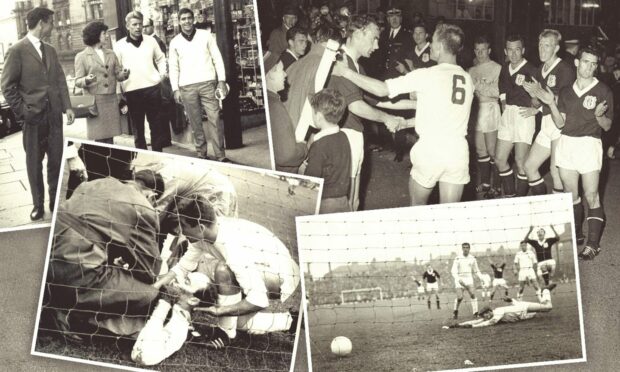
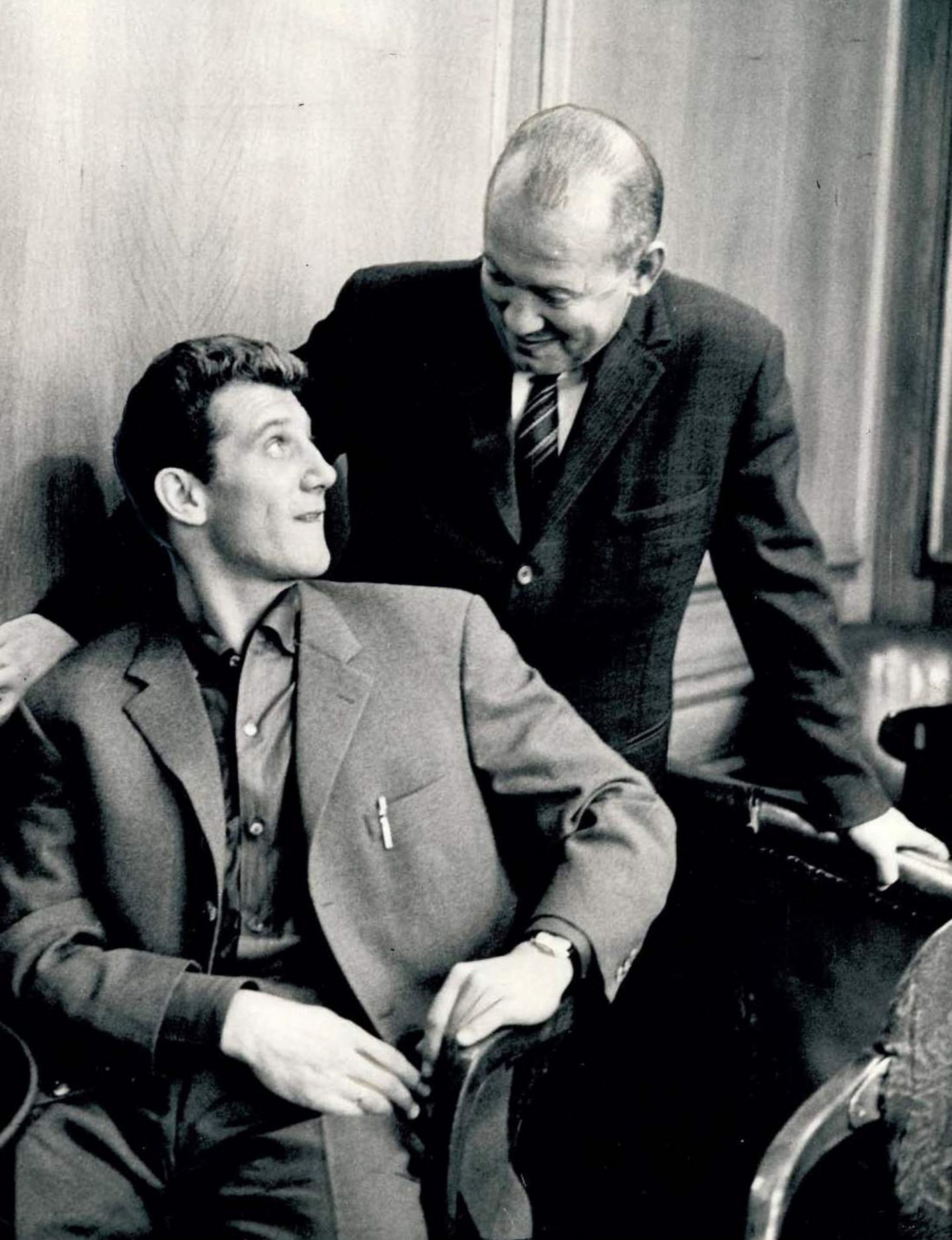
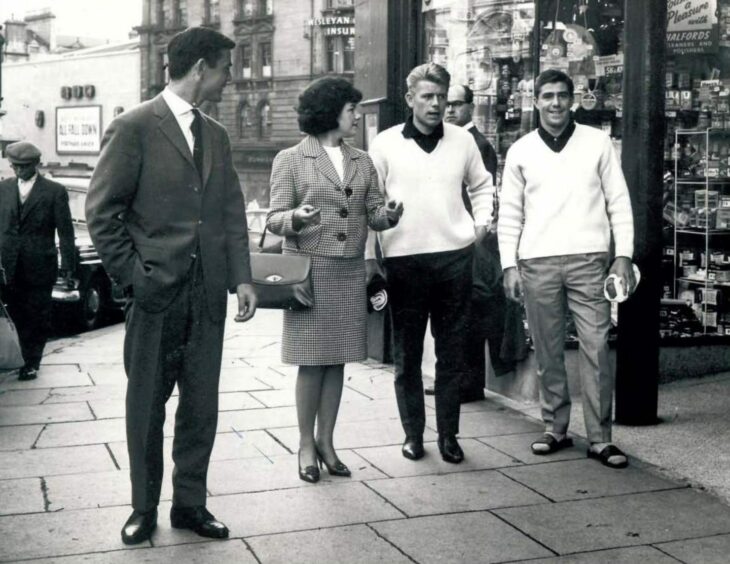
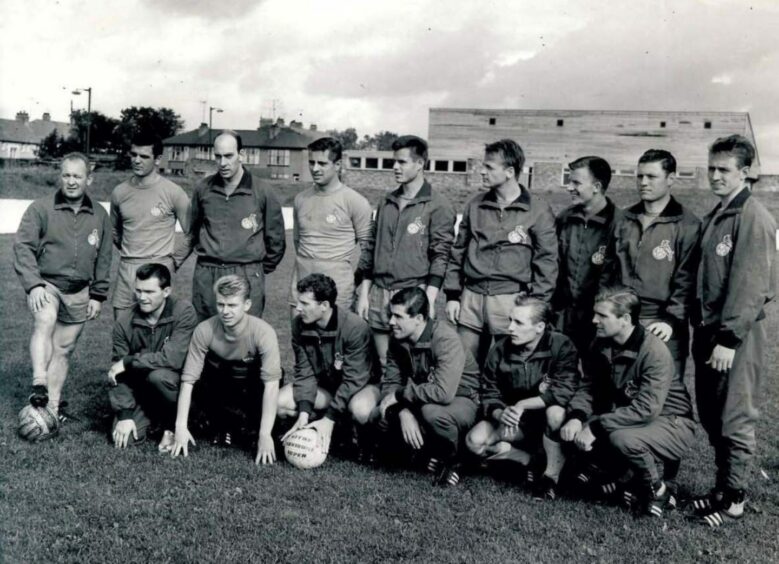
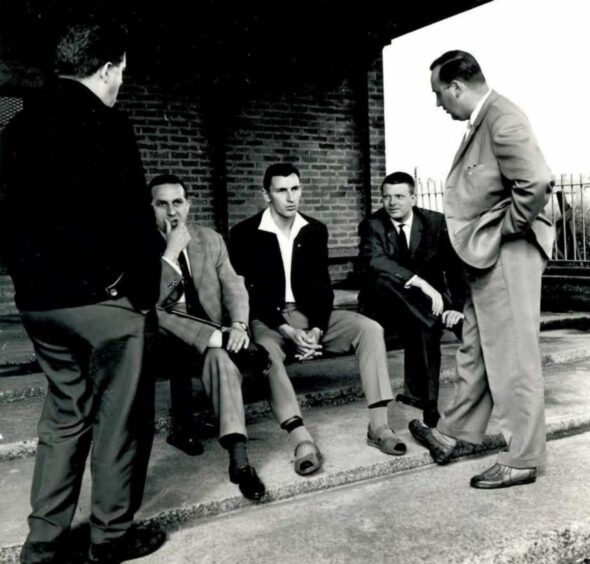
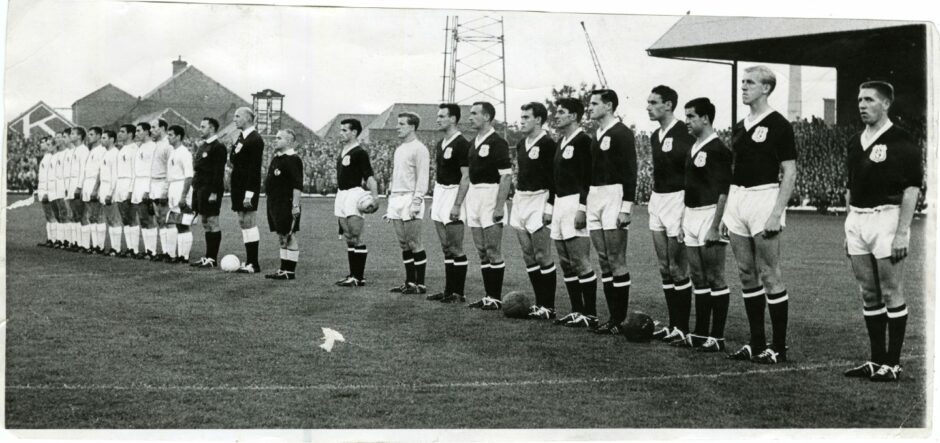
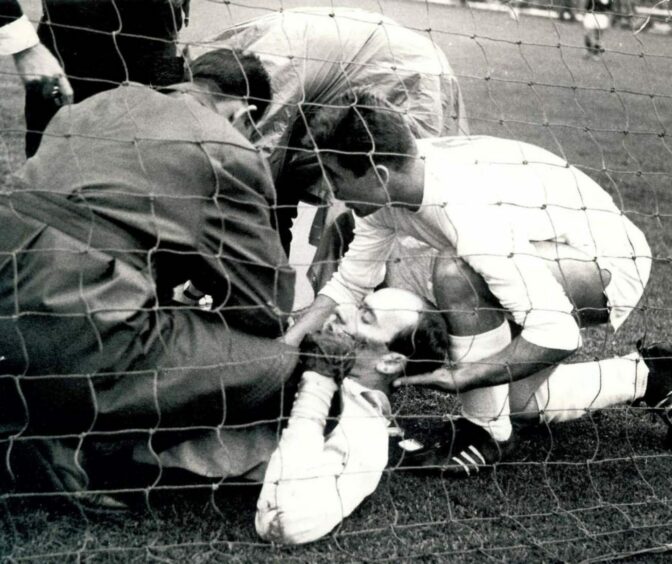
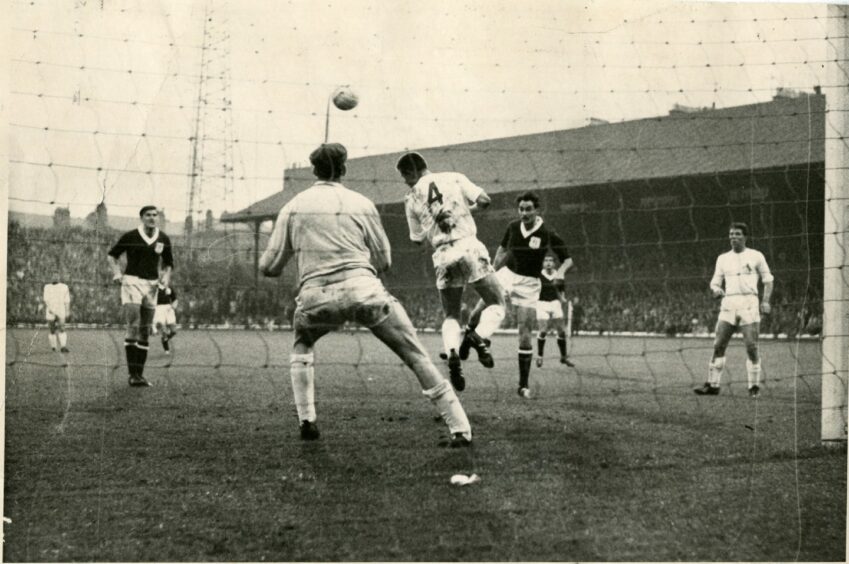
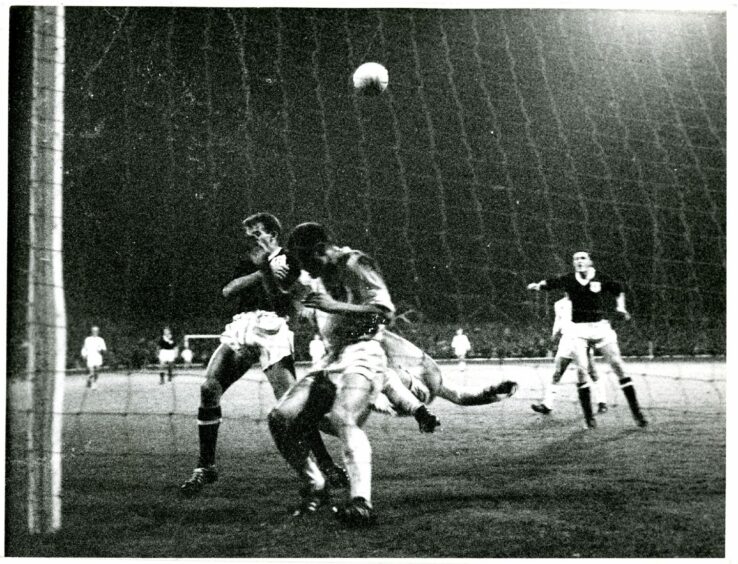
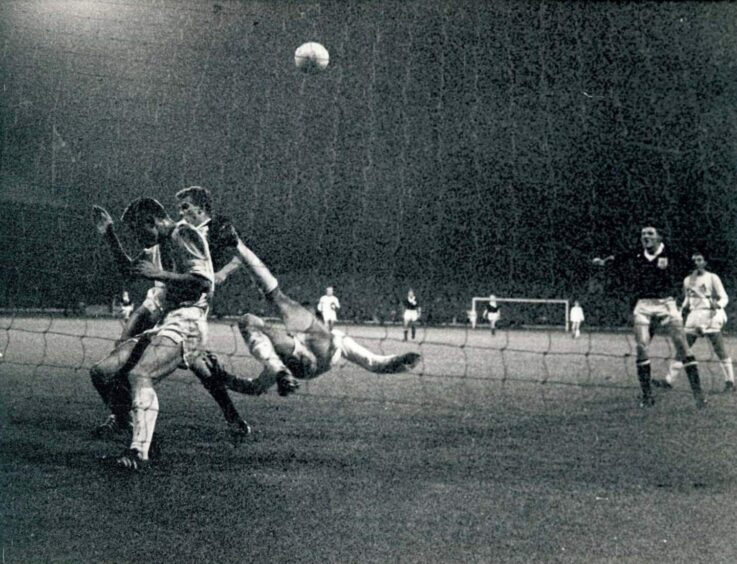
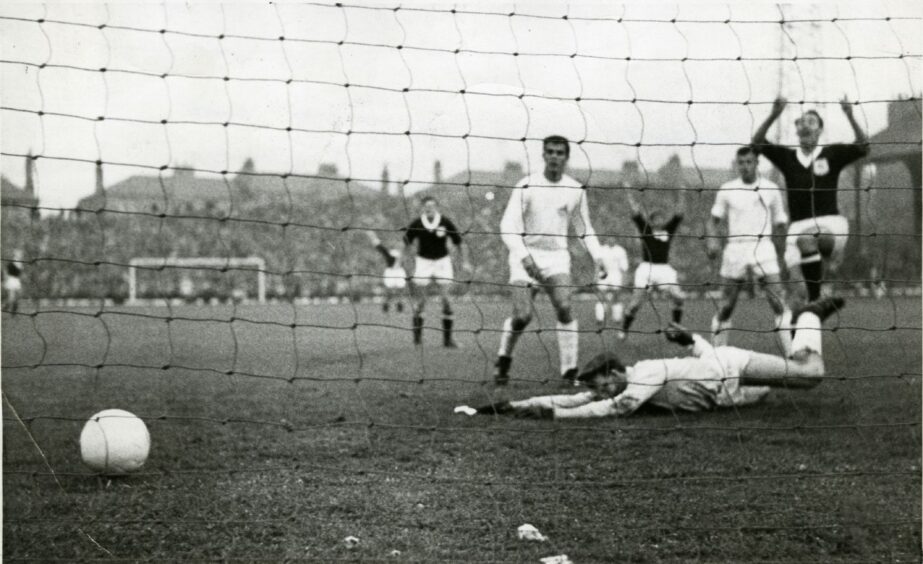
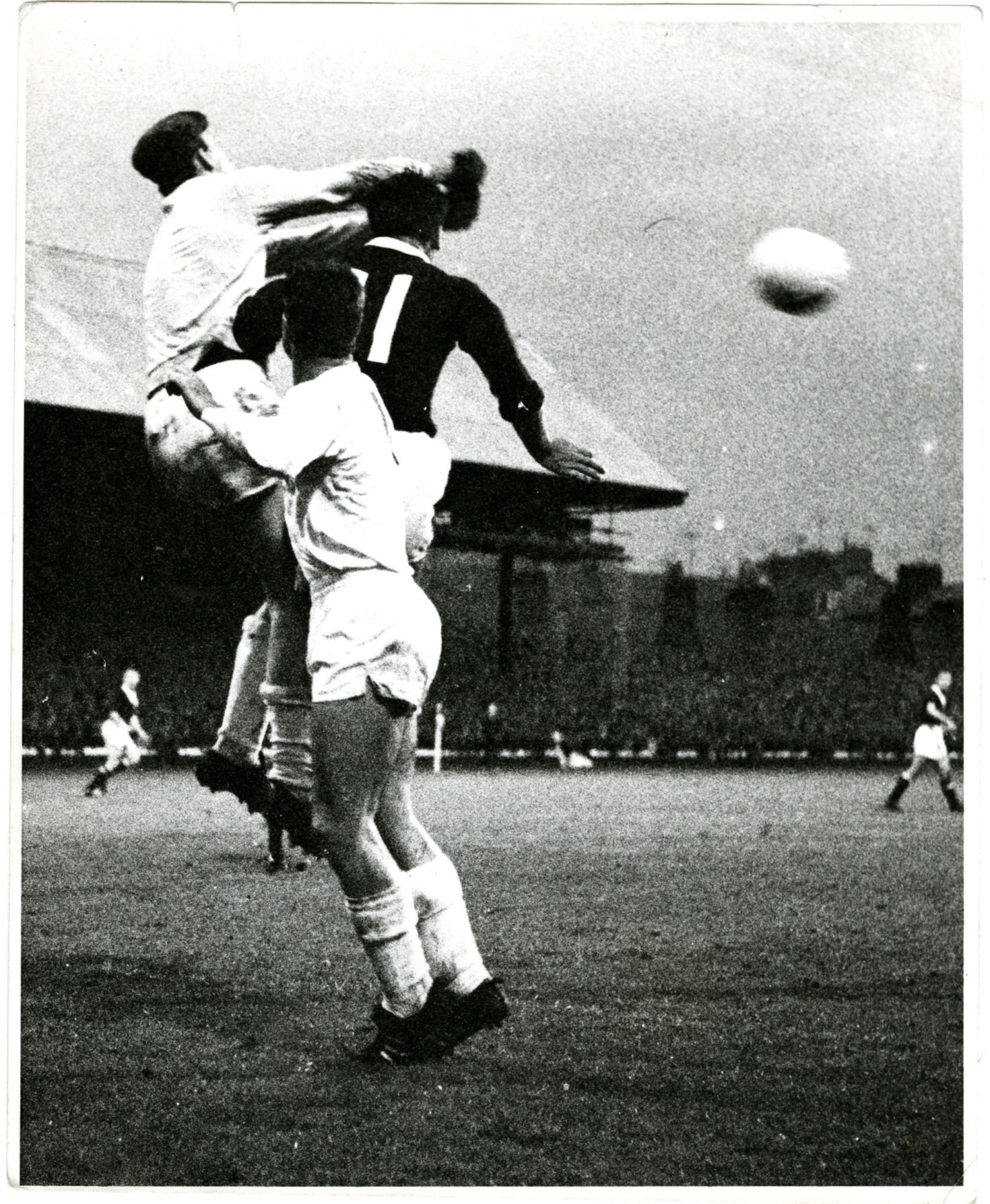
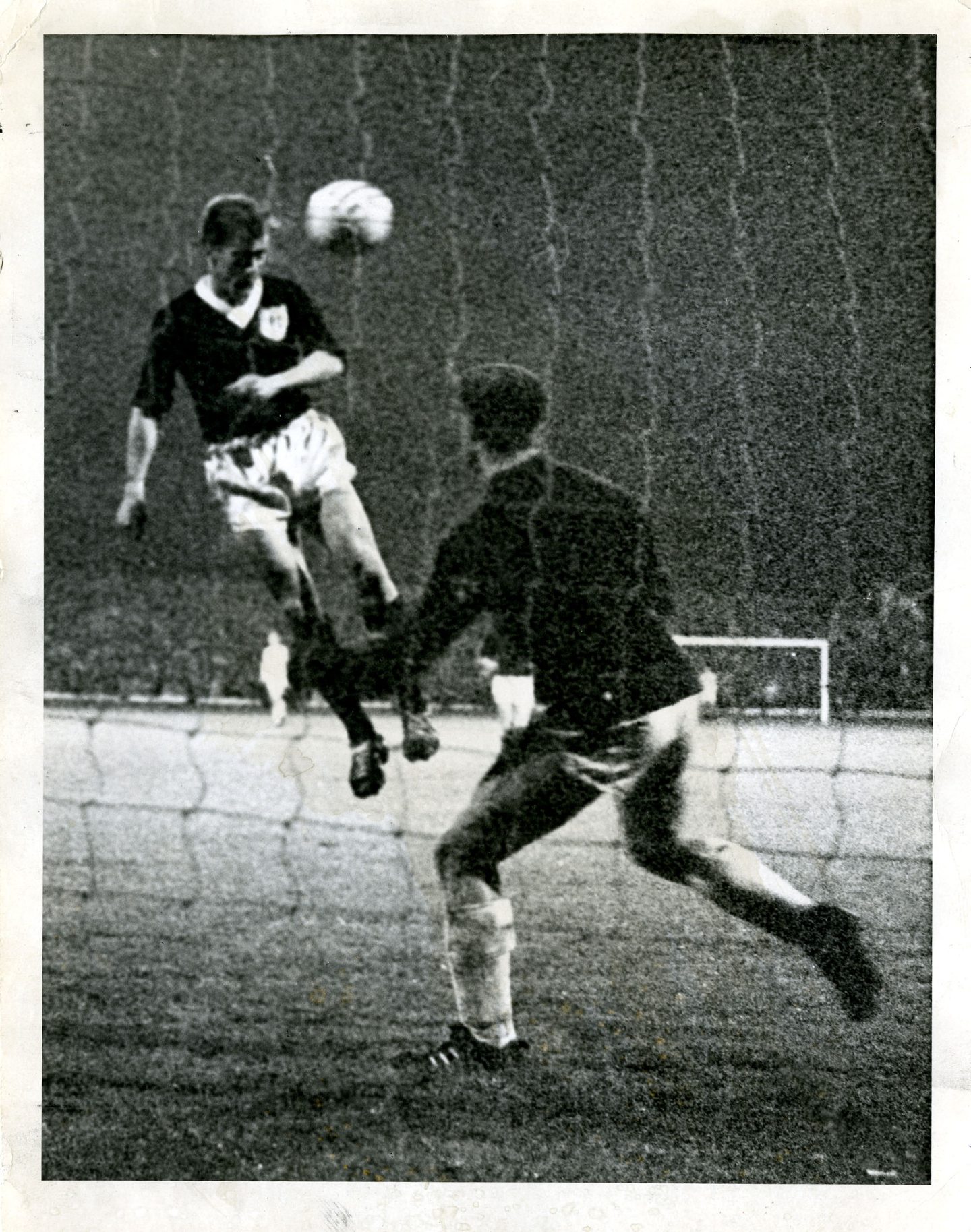
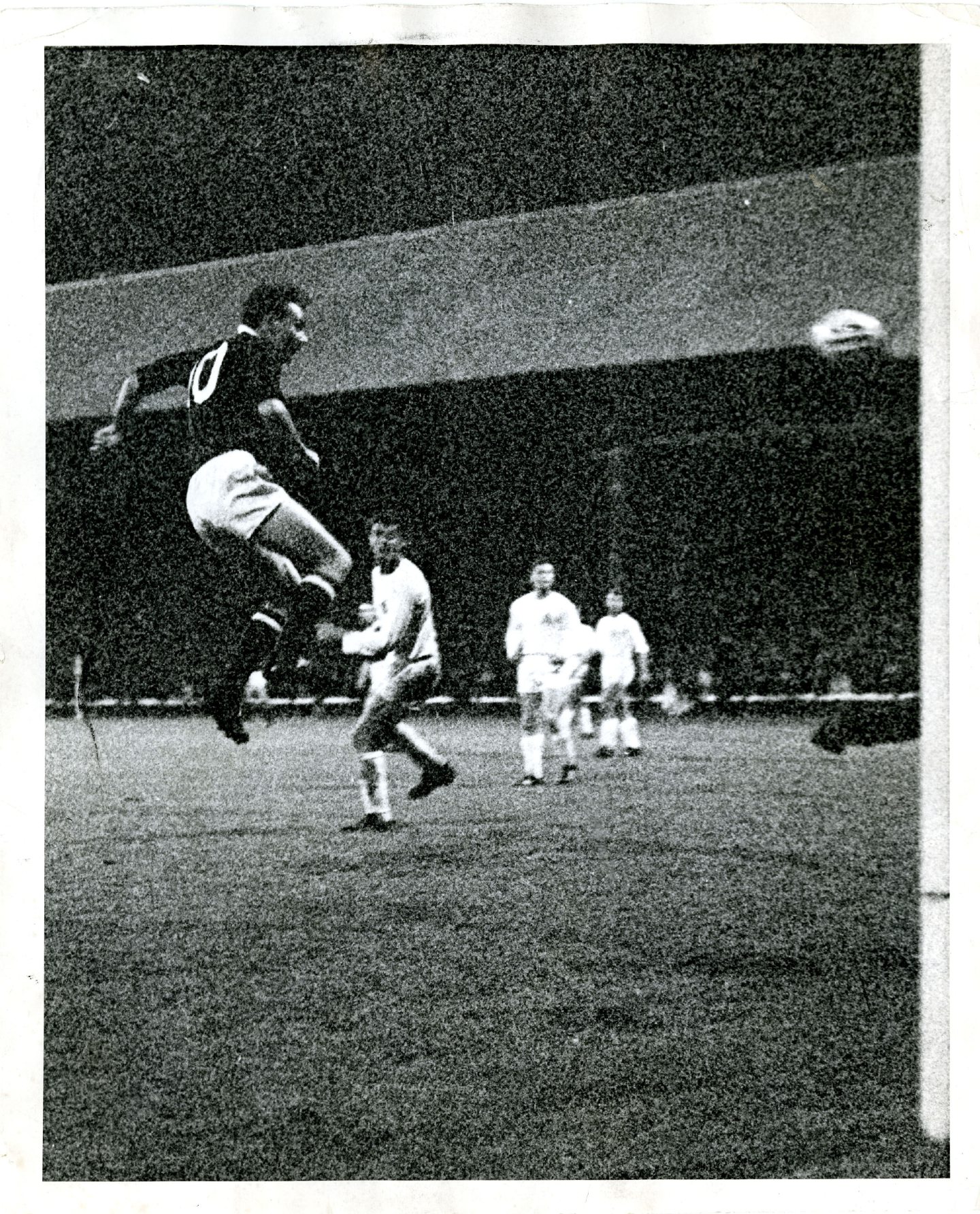
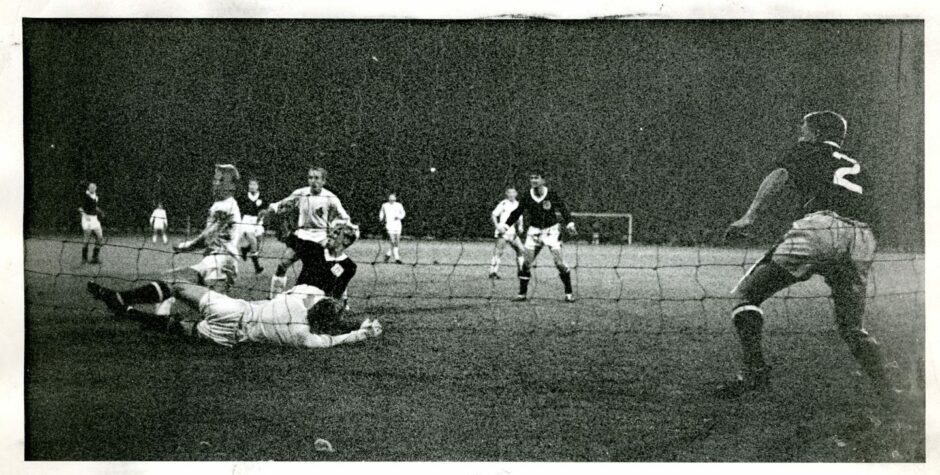
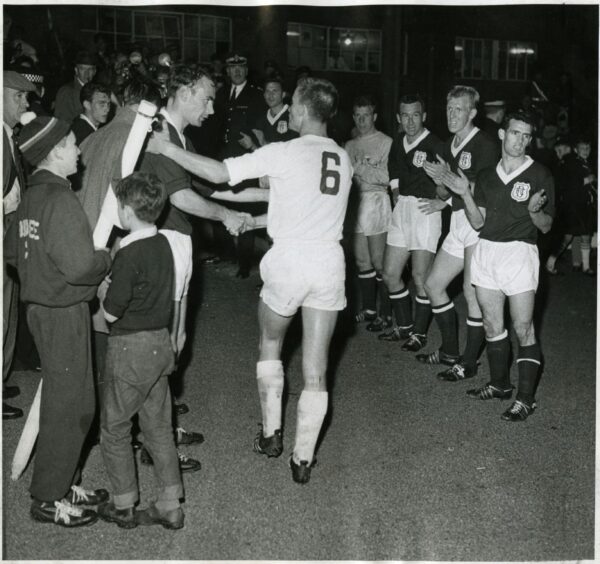
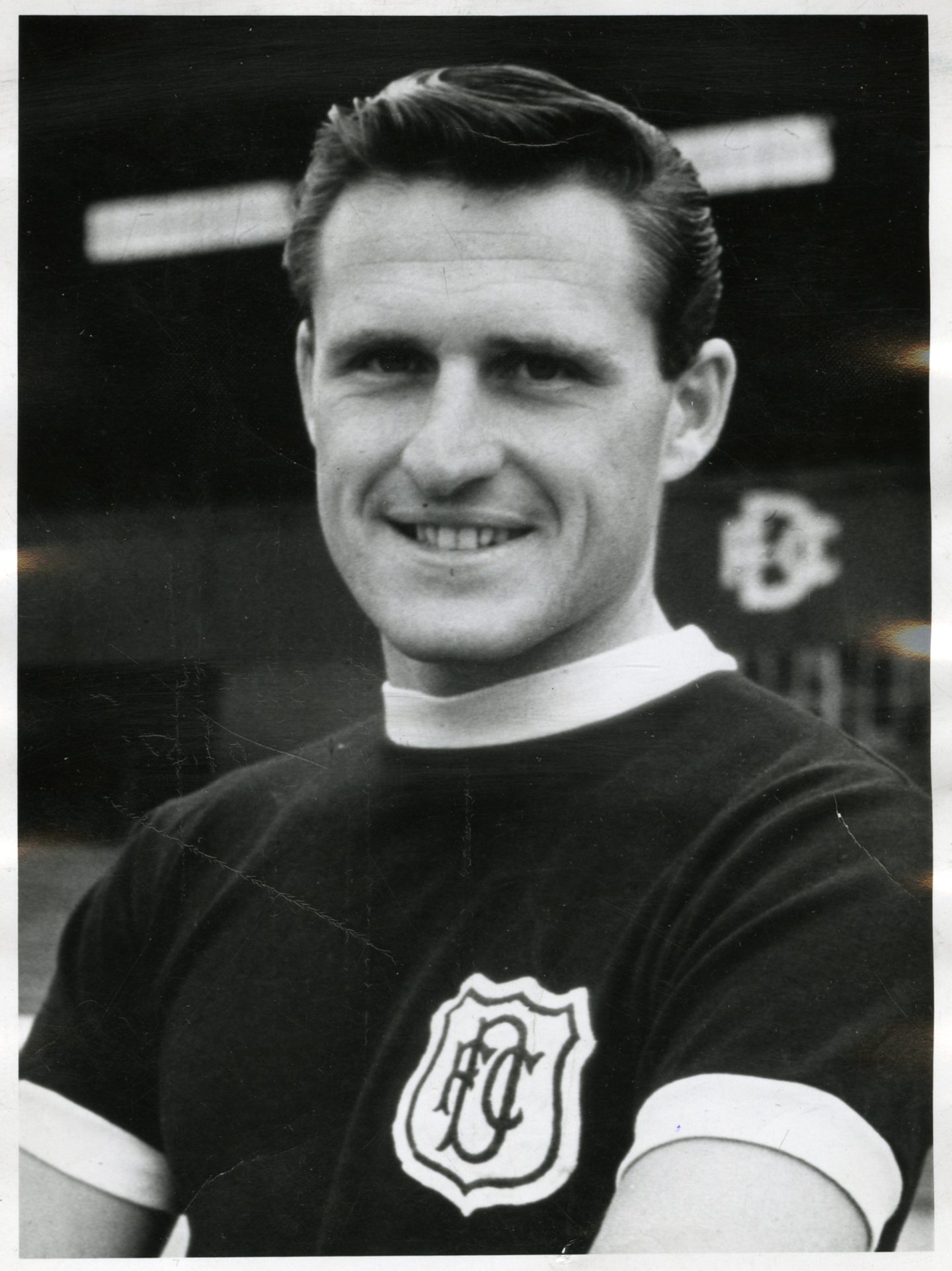
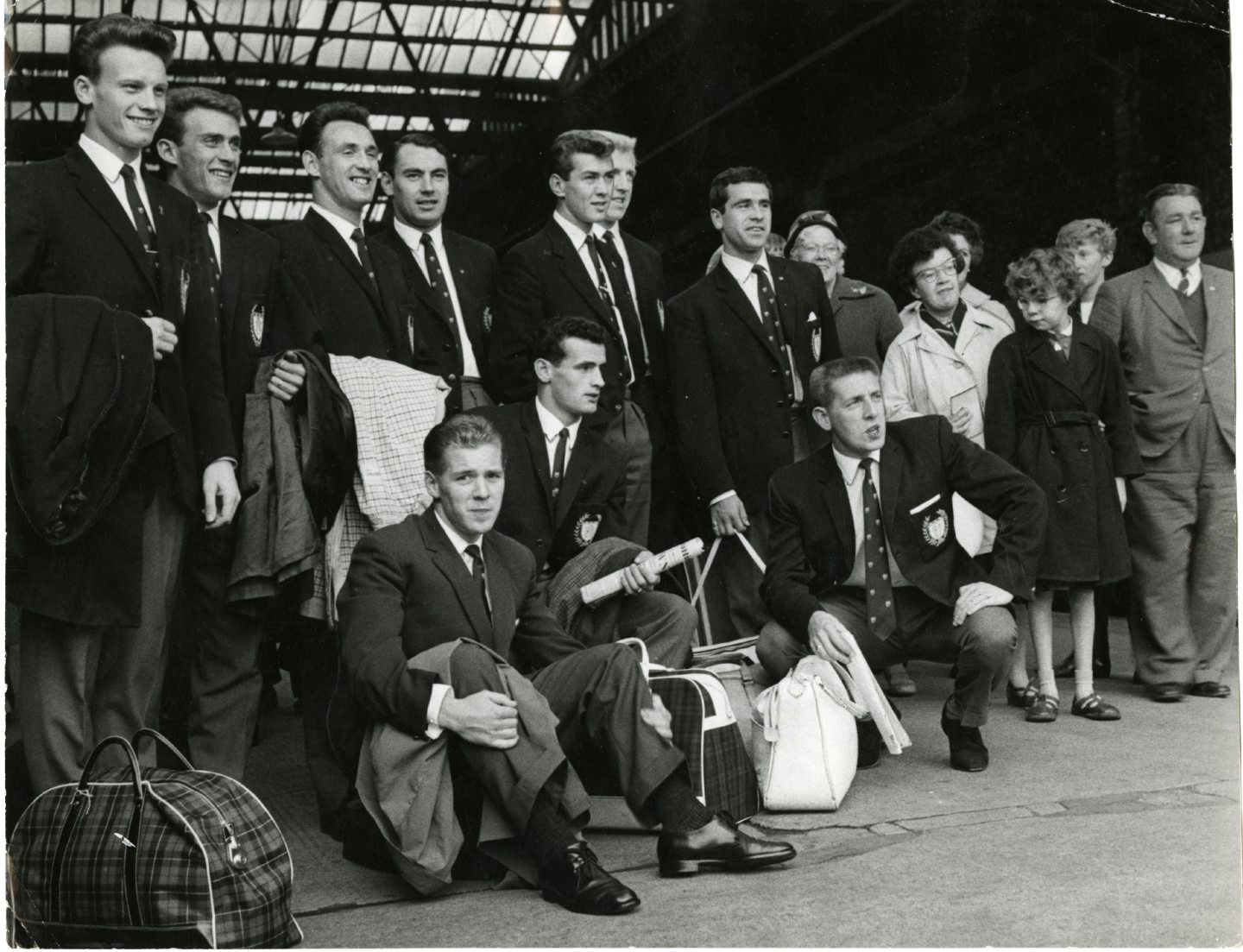
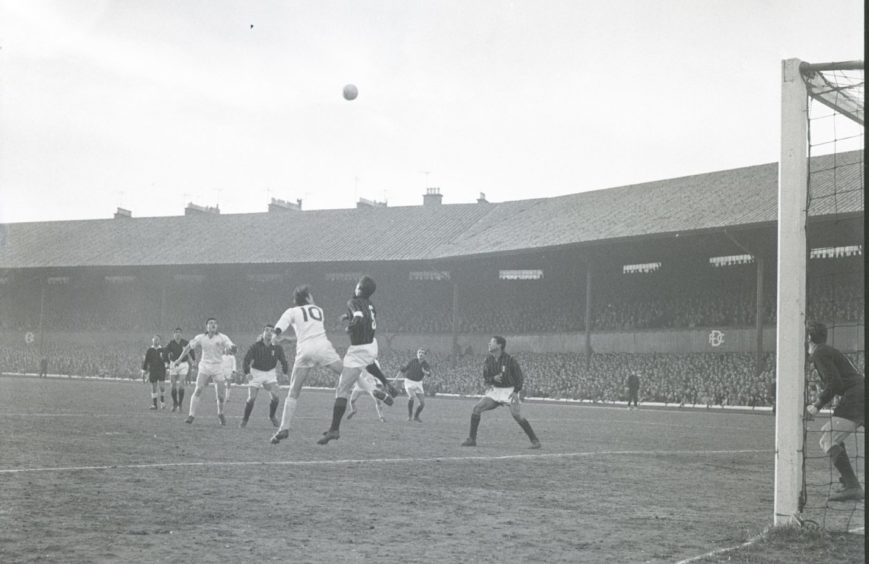


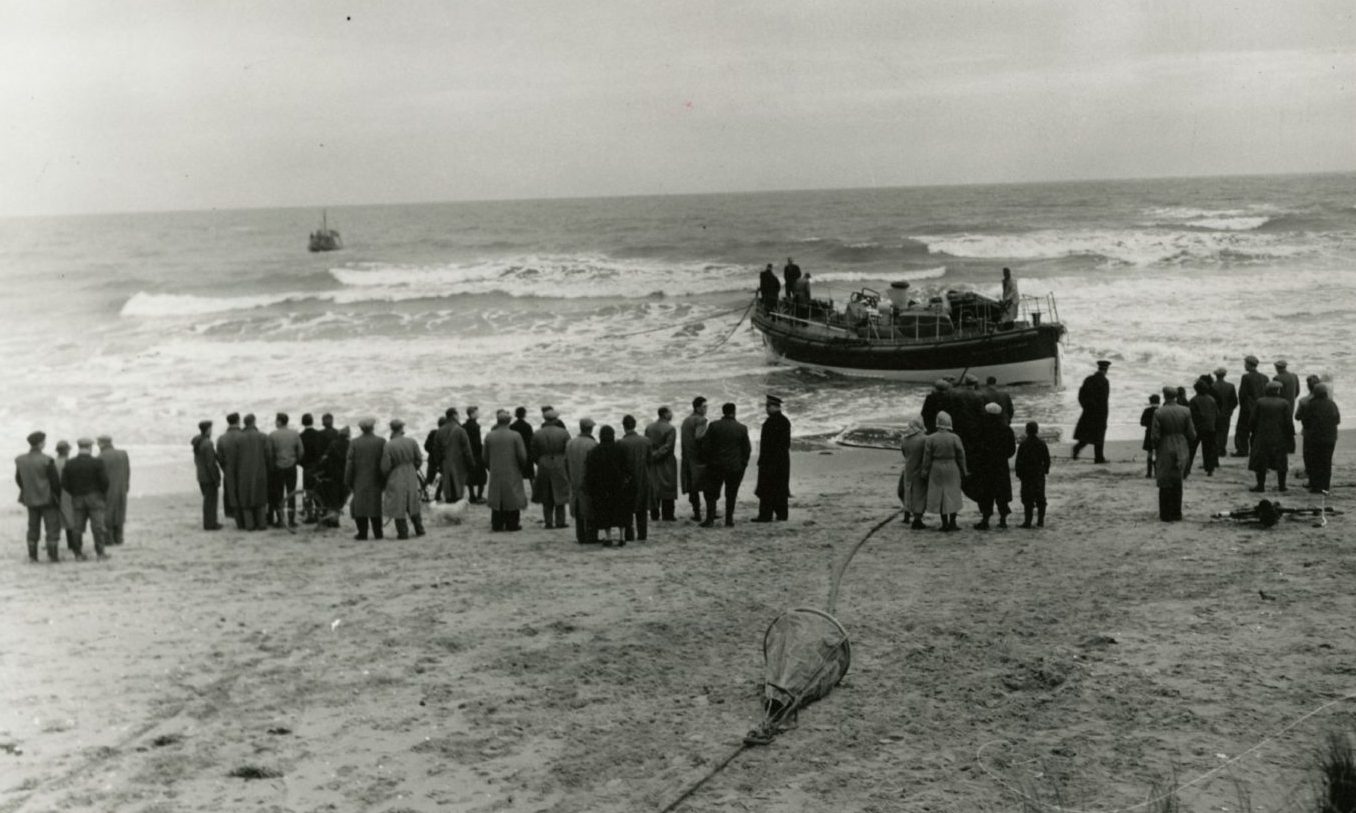
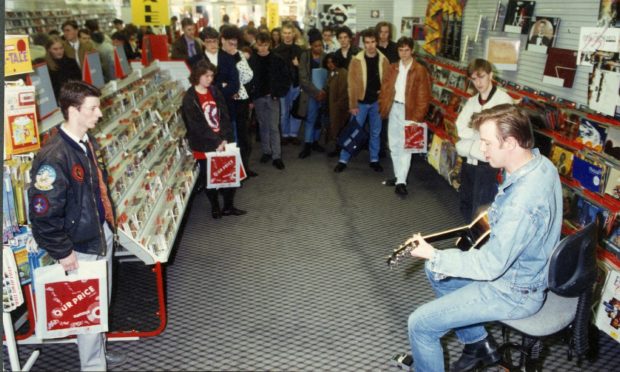
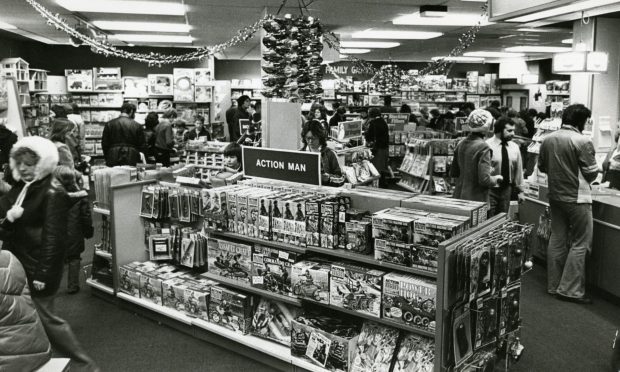
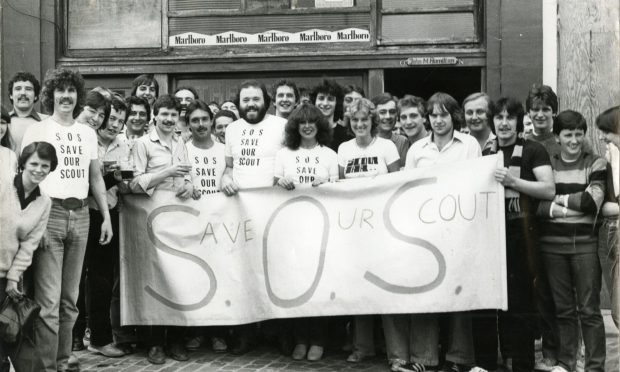
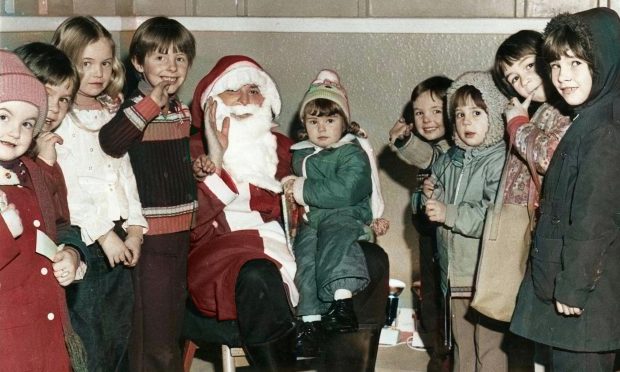
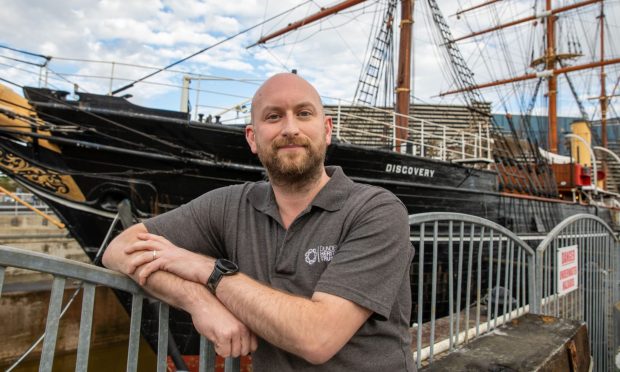
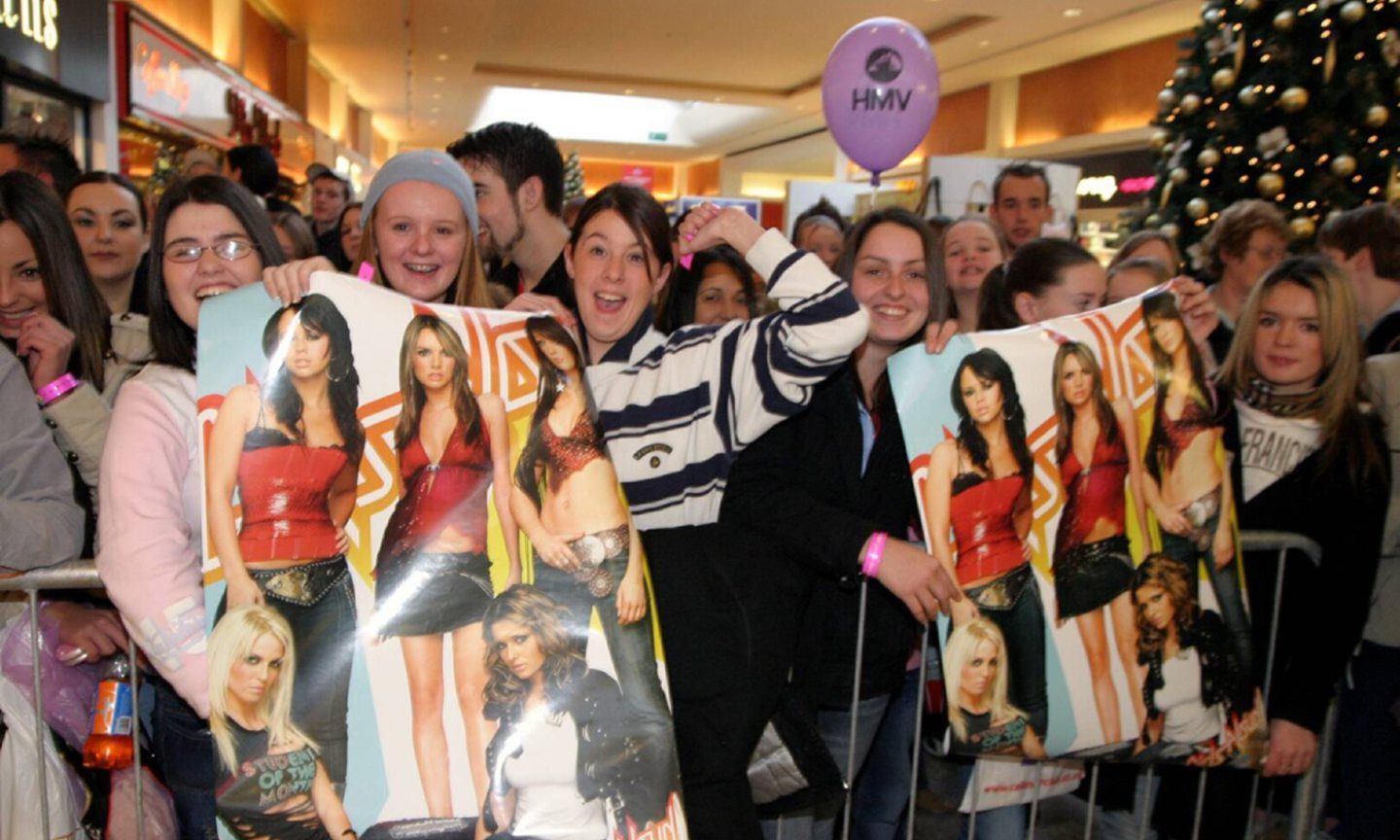
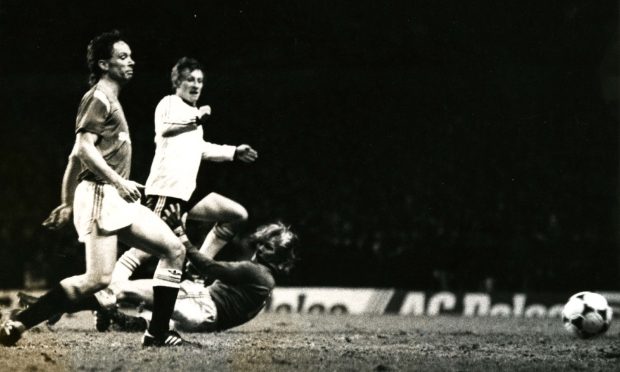
Conversation